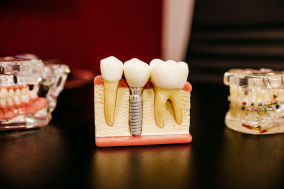Do you know why we brush our teeth every day and take care of our dental health? Our mouth is a straightforward place for various microorganisms to inhabit. When food is consumed, the bacteria enter the oral cavity, which causes many pathogenic strains and resident bacteria to settle. There are about 500 species of bacteria that live in our mouths. These bacteria develop oral diseases. For example, Streptococcus mutants and Streptococcus sobrinus cause tooth decay. Also, Porphyromonas gingivalis (P. gingivalis) and Aggregator actinomycetemates (ACTM) cause periodontal diseases. Therefore, oral hygiene is critical in preventing dental diseases.
The prominent place where oral diseases occur is the dental plaque, a complex bacterial membrane accumulated by attaching various bacteria to the acquired film on hard tissue such as teeth in the mouth. Therefore, the dental plaque and the growth of bacteria in the bacterial membrane should be physically and chemically removed and suppressed to prevent dental caries and periodontal diseases. As a chemical method, chlorhexidine effectively reduces the number of bacteria inhabiting the mouth. Though, it cannot be used for a long time to prevent oral diseases or suppress the activity of oral microorganisms due to side effects such as coloring of teeth and mucous membrane pain.
However, new treatment emerged among dentists. It has been found that essential oil, a volatile substance physically separated from plants, contributes significantly to the antibacterial effect of the oral cavity. The reason is that essential oil’s antimicrobial and anti-inflammatory nature is suitable for treating dental diseases. Essential oil – patchouli, citrus, lemongrass, etc. – has been used to attract insects, mainly as a fragrance component of flowers, and defend themselves against plant parasites or animals. Nonetheless, it has been used as medicine and dental products after the recent announcement of effects of essential oil’s antibacterial, antiviral, and anticancer.
So, why does essential oil have an antibacterial effect on the oral cavity? This is because essential oil components destroy the cell walls of bacteria and interfere with the enzyme activity of cells, killing bacteria. In addition, essential oil reduces pathogenicity by preventing clusters of bacteria involved in the early development of plaque, slowing bacterial replication, and withdrawing endotoxins from bacteria. Therefore, it effectively prevents and treats oral diseases by reducing the number of pathogenic bacteria.
The need for essential oil will increase in the future. The antibacterial effect of essential oil through the destruction of the cell wall is incredible. From a dental point of view, it can also be used as a substitute for chlorhexidine to remove bacterial membranes.
By. Sungju Park


